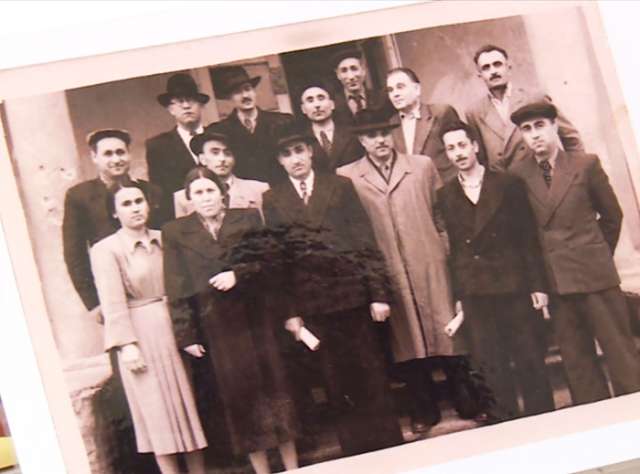Armenia`s without Turks policy - VIDEO

The Anti-Azerbaijani mood in Armenia started at the beginning of the last century, Irada Rzazadeh,a refugee from Armenia, told CBC, AzVision.az reports.
It is supposed that your motherland is where you were born and raised.
All the family members of Irada Rzazadeh also share this opinion. Her parents, brothers, sisters and other relatives are originally from Yerevan. They all lived in the neighborhood in the center of the Armenian capital.
Many other Azerbaijanis lived here for centuries, Irada Rzazadeh`s deceased father, who was a teacher at one of Azerbaijani schools in Yerevan, told her. While looking at the left photos, Mrs. Irada remembers her native land, work and house with warmth. However, one day, she had to leave all these behind.
The Anti-Azerbaijani mood in Armenia started at the beginning of the last century.
“At that time, my father worked at the Iranian consulate. You know conscience and memories always remain. I still remember the sounds, when attacks on the Azerbaijani houses began in the middle of the night. Those, who could go to the Iranian consulate, survived. In the morning, when we woke up, some people were crying, because someone from their family was killed. It continued for a long period of time.”
The Armenians launched the policy of ethnic cleansing of Muslims at the beginning of the 20th century. Thus, they attempted to create Armenia without Turks. The main target was the Azerbaijanis living in the neighborhood. The situation got better during the Soviet time. People lived and worked normally. Nevertheless, it was calm before the storm. Later, attacks on the Azerbaijanis were resumed. Many people had to leave.
“I will never forget the night, when I heard screams out of the window. At first, I thought that neighbors were arguing with each other. However, when I opened the window, I heard: “Come out! Come out! We have to conquer Karabakh! Come out! Come out!”
Before these incidents, Azerbaijani pedagogical and agricultural vocational institutions and schools had functioned in Yerevan. Gradually, the Armenians began to open Armenian sectors at Azerbaijani schools. It ended up with the closing of the Azerbaijani sectors. Moreover, the Armenians began to settle in Azerbaijani villages in Armenia.
“I was born in 1932 in Yerevan. I was also raised there. All of our neighbors were Azerbaijani. We had excellent conditions, yards and gardens. I remember that when we went to school and spoke the Azerbaijani language, some Armenian, who heard our speech, cried “Turka! Turka!” At that time, we did not know the meaning of this word. However, later, when the Armenians settled in our village, we understood what was going on. There was a very beautiful mosque with a big yard. In 1946, the Armenians from Syria were settled in this mosque. They were in a bad condition and looked horrible. Besides, they did not know their native Armenian language. The houses of the Azerbaijani people were taken away from them and given to the Syrian Armenians. They built houses in our territories.”
“One day, I came to work. One person approached me while I was teaching and asked something in Azerbaijani. I had to teach in Russian in the Armenian sector. All the students stood up and told us to speak Armenian and insulted our language.
You know I had two choices: either make a conflict or be more politically correct. I tried to solve this problem in a peaceful way. If I made a conflict, I would be beaten up. I told them that I did not insult their language, I spoke their language, and that they should not insult my language either.”
At that time, approximately 250 000 Azerbaijani people were banished from Armenia. During the deportation, hundreds of Azerbaijanis died. The official number of casualties is 214; most of them were women, children and elderly people. These people were murdered with special atrocity. They were beaten up to death, some of them died of tortures, burnt alive, strangled and frozen to death. It should be noted that after the deportation of the Azerbaijani people from Armenia, there was an earthquake in the territory of their settlement. As a result, their houses were destroyed. However, unlike the Armenians, who left Baku, most of the landowners could not get compensations.
After banishing the Azerbaijanis, the Armenians started abolishing the cultural and historical heritage of the Azerbaijani people. The Armenians abolished the Azerbaijani monuments, mosques, changed toponyms. Thus, the Armenians decided to mark the anniversary of the so-called genocide of their ancestors continuing to blame the Turkic people. The Armenian people still consider the Azerbaijanis and Turks their main enemies.













































